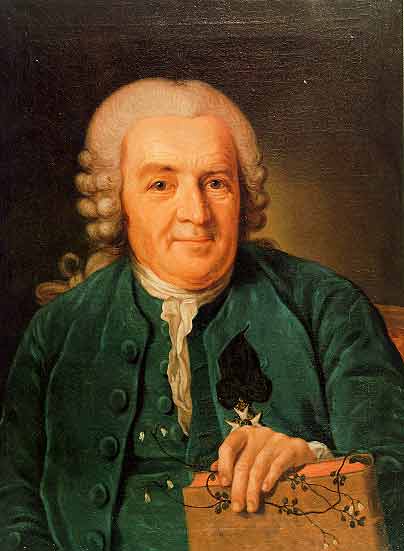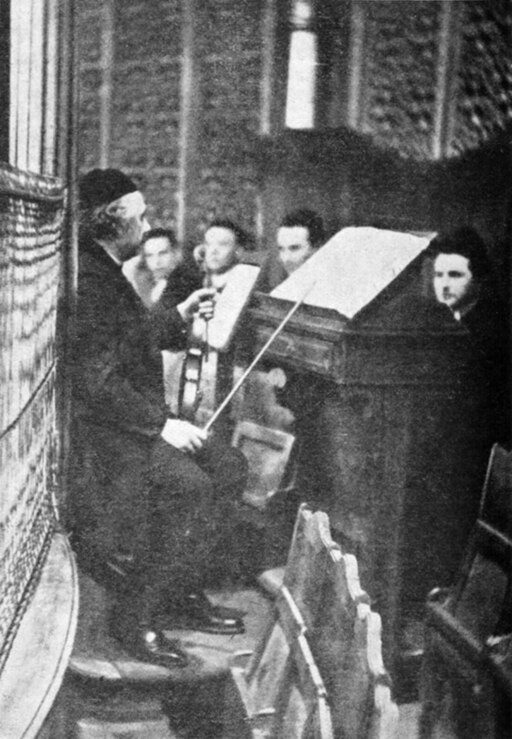Why do we study science? Throughout the Research strand, Challenge B students (ages 13 and older) learn many wonderful lessons through studying science that help them understand the world more fully and become better researchers. This post explores several reasons why learning science is essential by examining the research Challenge B students conduct on the lives and discoveries of famous historical scientists.
- Studying Science Inspires Curiosity and an Attitude of Discovery
- Studying Science Offers Perspective
- Studying Science Encourages the Integration of Subjects and Ideas
- Studying Science Promotes Truth-Seeking
- Studying Science Trains Us to Ask Good Questions and Find Good Answers
5 Reasons Why Studying Science is So Important
Science, of course, is a vast field of study. This list of reasons is far from comprehensive as to why we should study science. Still, hopefully, this post will offer you and your student some insight into why science education is so important.
First, we’ll examine some common misconceptions about science in our culture.
We’ll dispel each of these myths through Challenge B students’ research into the lives and discoveries of well-known scientists. As students learn more about the lives of past scientists, they’ll come away with the importance of a science education.
Then, we’ll wrap up each section with several important lessons that Challenge B students learn from researching the lives of great scientists in the past. We’ll also look at how a strong science education interacts with culture and philosophy.
1. Studying Science Inspires Curiosity and an Attitude of Discovery
Misconception
Today, we have access to more information than ever before in the history of man. That’s great, but it can also give us the misleading impression that we already have all the possible answers. Unfortunately, our superabundance of information creates the illusion that science is “settled,” that virtually all there is to be known has already been discovered, and not much can be added to the existing body of knowledge.
Google is a powerful tool, but we can’t Google our way to scientific knowledge.
Truth
In fact, science is not about settled facts. Rather, science is about inquiry, gathering evidence, formulating hypotheses, designing experiments, and innovating. Science is creative, inspires curiousity, and encourages an attitude of exploration.
Challenge B students learn, through real-life examples, that “settled” science has routinely been re-energized by new ideas throughout history. Consider Louis Pasteur and the scientific theory of spontaneous generation. Until the 19th century, scientists and natural philosophers maintained that living organisms could come into existence from nonliving matter. Louis Pasteur disproved this theory by sterilizing beef broth and noting that the broth did not produce microorganisms when properly isolated from contamination. When he exposed the broth to the environment, however, microorganisms began to develop. Through experimentation, Louis Pasteur overturned over two millennia of “settled” science.

Furthermore, scientific innovations do not come out of nowhere but instead build upon previous information viewed in a new light. A fantastic example of this is Johannes Kepler, who worked with existing understanding and calculations but had the aha moment of realizing that in order to fit the observed data, the planets’ orbits had to be elliptical rather than circular.
Lesson
Students are exposed to excellent role models in the scientists they research.
Students learn from these scientists how to be discoverers themselves. They perceive that science is explorative, innovative, and creative. Students also learn the important life lessons of dealing with the ambiguities and frustrations of stepping out into uncharted territory. They learn from famous examples like Faraday or Curie to respond to the questions of what to do when they do not have access to an answer key or an expert resource to consult. In addition, students are frequently inspired to lifelong scientific curiosity by the models they meet in their research.
2. Studying Science Offers Perspective
Misconception
Technology is advancing faster than ever before. As a consequence, we may feel as if there had been no progress in science until the sudden explosion of discoveries in the modern age.
Young people, in particular, may find it difficult to appreciate the important and revolutionary discoveries of the past because they seem to pale in comparison to the flash and dazzle of the 21st century.
Truth
Scientific learning has been progressing for centuries, and our scientific knowledge is layered, building upon the understanding and information of past ages. True, scientific knowledge has been advancing at an extremely rapid pace in recent years, but that does not invalidate or discredit the vastly important discoveries of the past upon which our current knowledge rests. Students can see how Linnaeus, for example, laid a solid foundation for the genus and species divisions of classifications we still use today.

Consider how our knowledge of astronomy is built upon so many foundational discoveries. Today, we have powerful telescopes that allow us to see incredibly distant astronomical bodies. Some of these telescopes still use lenses. The first lens was possibly created in the early 1600s, but then the lens was developed over time by scientists like Galileo, Kepler, and Newton alongside advances in the science of optics.
Today, most telescopes are powered by radios and computers—think of the foundational ideas that enable these technologies. Radios depend upon the theory of electromagnetism, which was unified by James Clerk Maxwell in the 19th century but had deeper roots. And computers are founded upon the theory of the atom, a theory that goes back to ancient Greek philosophy!
Lesson
Science is always in the process of being refined. New ideas build upon older ideas (some of which are being rediscovered after being long buried in obscurity). Science is not static.
Students learn to appreciate the fluidity of scientific knowledge and begin to understand how their own knowledge and discernment are important when examining any scientific ideas or discoveries they encounter in their own lives.
3. Studying Science Encourages the Integration of Subjects and Ideas
Misconception
In the modern age, we have a fragmented way of looking at the world. We tend to define everything by particulars and by differences rather than commonalities. This is especially true when we think about the subjects of education. Often, students are not encouraged to perceive how science is related to history or how math is like poetry. We tend to break our studies into the sciences, the humanities, the arts, and so on, as though they are separate and unrelated.
Truth
Although this is our tendency, it is not the reality.
We live in a world in which the sciences, humanities, and arts are integrated all around us in our daily experiences. Just go to the movie theater today to watch a blockbuster, and you will see the melding of story, art, science, technology, music, and more. And, of course, neither scientists now nor those in the past have explored, researched, pondered, or discovered in isolation.
Rather, they have lived and worked in real time and in real places. They are heavily influenced by prevailing philosophies, current events, artistic movements, and spiritual trends. They are not affected by science alone but by the whole of their own experiences and their culture, education, and personal understandings.
In other words, science happens within a historical context with a myriad of other factors, ideas, and subjects.
This can be clearly seen when one researches the life of Einstein, for example. We cannot divorce Einstein from the prevailing factors of his time, including the budding technologies of astronomy and the historical and political tensions presented by the Second World War.
Students are also often surprised to learn that Einstein was an accomplished musician, who reportedly said, “If I were not a physicist, I would probably be a musician. I often think in music. I live my daydreams in music. I see my life in terms of music.”

Lesson
Students learn to identify with the men and women behind the scientific discoveries that have such an indelible impact on the students’ own lives today.
Almost every scientist studied has had a direct influence on our daily, modern existence. Through their research, students see these scientists as real people, who came from definite places and backgrounds, who had certain kinds of education and beliefs, and who had goals and aspirations. They learn from this that science does not happen in some sort of scholarly, academic vacuum, but is an integral part of the course of civilization’s development.
4. Studying Science Promotes Truth-Seeking
Misconception
Our world is inundated with the philosophies and underlying assumptions of relativism: everyone’s truth is his or her own, constructed from personal experience and suited to each individual. Although science upholds the ideal of objectivity in its methods, it has been haunted by the specter of relativism as well.
The question of whether light is a wave or a particle has had long-term consequences. Unable to conclusively and objectively observe and analyze light, science has been thrown into confusion trying to decide how to even define this fundamental aspect of everyday experience.
And, of course, the Theory of Relativity brings the issue of subjective perspective into even greater focus. Science has been forced, despite itself, to question its own capacity to observe, define, and measure.
This produces a high degree of cognitive dissonance in our culture, for while we fanatically adhere to the truths and the products of science—sometimes almost to the point of idolatry—ultimately, in our heart of hearts, we doubt even the truths of science that we rely upon (from those of medicine to those of space travel).
Truth
In fact, there are so many ways in which we can know the science we rely on is objectively true. If it was not, we would not be able to do successful cutting-edge surgeries or fly space ships . . . or even plant crops successfully with any hope of harvesting them.
That is not the same as saying that science is objectively foolproof, but it is claiming that in some very important ways science meets reality in a way that we can apply the scientific method and do so with great achievement. Even though we may not understand all there is to know about satellite technology, for example, we do know that it is working with a fair amount of accuracy.
Lesson
In researching the lives and work of great scientists, students learn that these men and women—even though they stepped out into the unknown, and even though they were influenced by the times and places in which they lived—sought timeless, objective truths that could then be applied to life successfully.
This affirms not only the validity of scientific endeavors but it confirms that we are able, through the scientific method, to reach, articulate, and use truth concretely in our lives. Whether or not a plane flies is not relative; it either does or does not fly! The questions of how fast it flies or what its length is are ones that come up with relativity, but do not dispute actual event of the flying.
Students are able to see scientists actively pursuing abstract truths that can then be used in the concrete world, which is a great testimony against the philosophies of relativism so prevalent in our times.
5. Studying Science Trains Us to Ask Good Questions and Find Good Answers
Misconception
In a materialistic, results-oriented culture, we often have the idea that the answers are the most important part of any inquiry, especially scientific ones. And, of course, while it is critical that answers be correct whenever we want to apply scientific knowledge (after all, we want buildings that stand, bridges that don’t collapse, and medical equipment that is effective), we tend to downplay the importance of the role of the questions that were being asked in order to get to those good answers.
The misconception is that the process of exploring, testing, investigating, pondering, and inquiring is less important than the answers.
Truth
In reality, the scientific process is vital, and knowing how to travel through that process with perseverance and discernment is critical. In fact, we could argue that the scientific method is more important than the answers it produces! It takes many scientists many years of labor through a multitude of various hypotheses and experiments to come to the conclusions which then provide the answers we now rely upon for all of our needs.
Take Gregor Johann Mendel, for example. Gregor Mendel, an Augustinian friar and scientist, studied plant hybridization for years, but the significance of his work went completely unrecognized by his peers—in fact, his research was severely criticized!
Today, Mendel is known as the father of genetics.
Lesson
Students who study the lives of real scientists gain an appreciation for all the hard work, patience, humility, and sheer volume of time and effort required for most major scientific discoveries to become part of the scientific body of knowledge.
In turn, this helps students to understand not only the scientific method, but the importance of asking good questions, of sacrificing of themselves, and of tackling hard things as they seek knowledge, understanding, and wisdom.
The Benefits of Studying Science and the History of Science
These five reasons why we study science are not ranked. Instead, they each stand alone and overlap with one another. After having researched the lives of the selected great scientists in the fall semester of Challenge B, every student will have had the opportunity to benefit from a wonderful grounding in an insightful and solid education in the nature and history of science.




